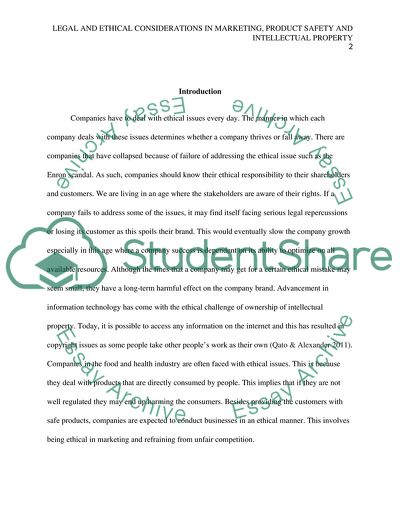Cite this document
(Legal and Ethical Considerations in Marketing, Product Safety, and Term Paper, n.d.)
Legal and Ethical Considerations in Marketing, Product Safety, and Term Paper. Retrieved from https://studentshare.org/marketing/1814629-legal-and-ethical-considerations-in-marketing-product-safety-and-intellectual-property
Legal and Ethical Considerations in Marketing, Product Safety, and Term Paper. Retrieved from https://studentshare.org/marketing/1814629-legal-and-ethical-considerations-in-marketing-product-safety-and-intellectual-property
(Legal and Ethical Considerations in Marketing, Product Safety, and Term Paper)
Legal and Ethical Considerations in Marketing, Product Safety, and Term Paper. https://studentshare.org/marketing/1814629-legal-and-ethical-considerations-in-marketing-product-safety-and-intellectual-property.
Legal and Ethical Considerations in Marketing, Product Safety, and Term Paper. https://studentshare.org/marketing/1814629-legal-and-ethical-considerations-in-marketing-product-safety-and-intellectual-property.
“Legal and Ethical Considerations in Marketing, Product Safety, and Term Paper”, n.d. https://studentshare.org/marketing/1814629-legal-and-ethical-considerations-in-marketing-product-safety-and-intellectual-property.


